How to decorate with a moody color palette – everything you need to know
These expert tips will ensure you feel confident when decorating with a moody color palette
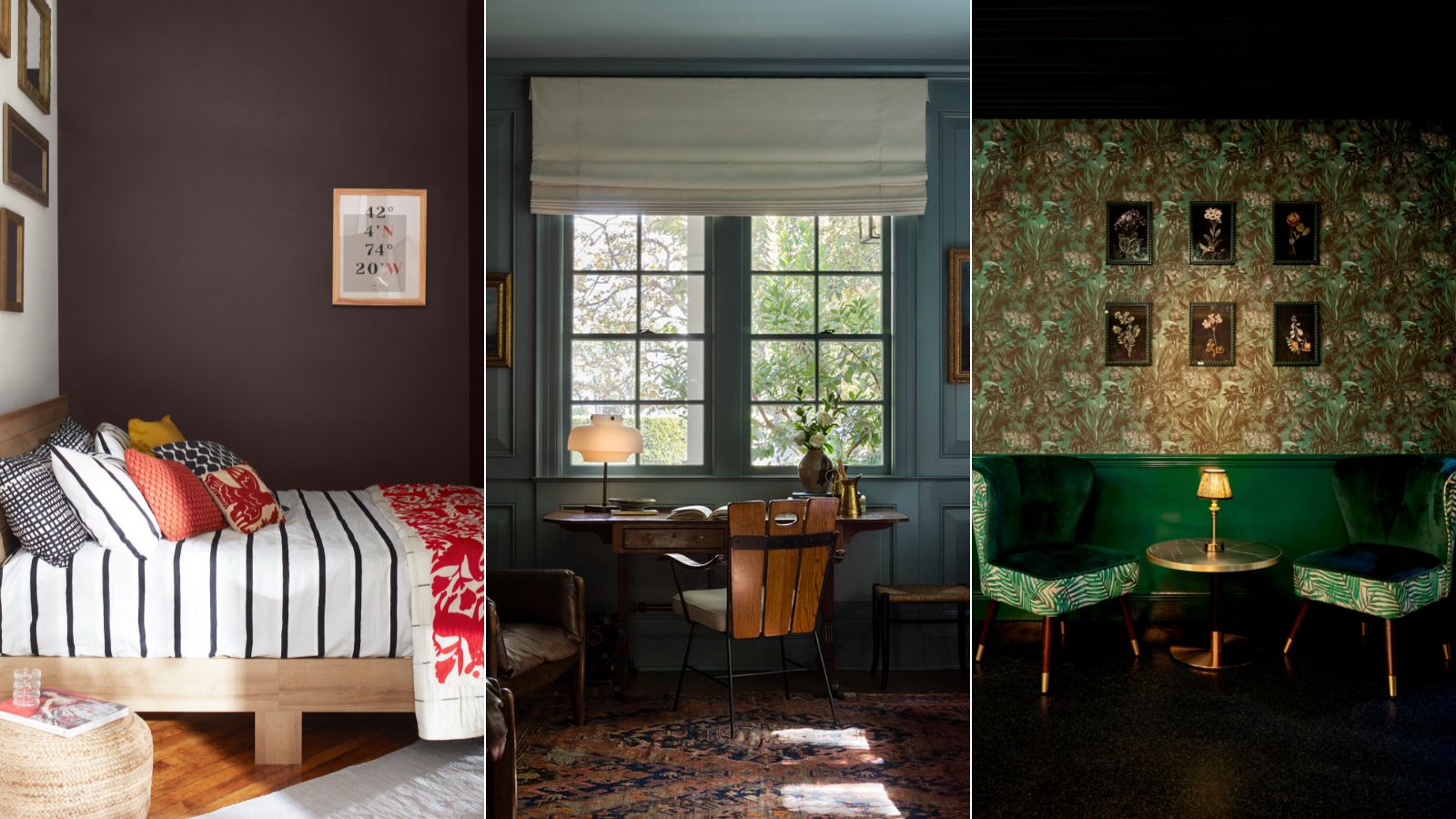

Decorating with a moody color palette can feel daunting – there is always a great emphasis on making spaces brighter and lighter, and a dark color palette suggests going against this. However, when done the right way, moody colors can add depth and personality to a room without creating a dingy feel to the space.
Deep, moody hues can enrich any interior, and there are plenty of colors to choose from. With complimentary shades and carefully chosen decorative elements, you can curate a fresh, unique space that showcases your style and character.
If you're not sure where to start, or simply aren't sure of the right color ideas to choose, we've asked the experts to share their favorite hues and top tips for decorating with moodier shades.
What is a moody color palette?
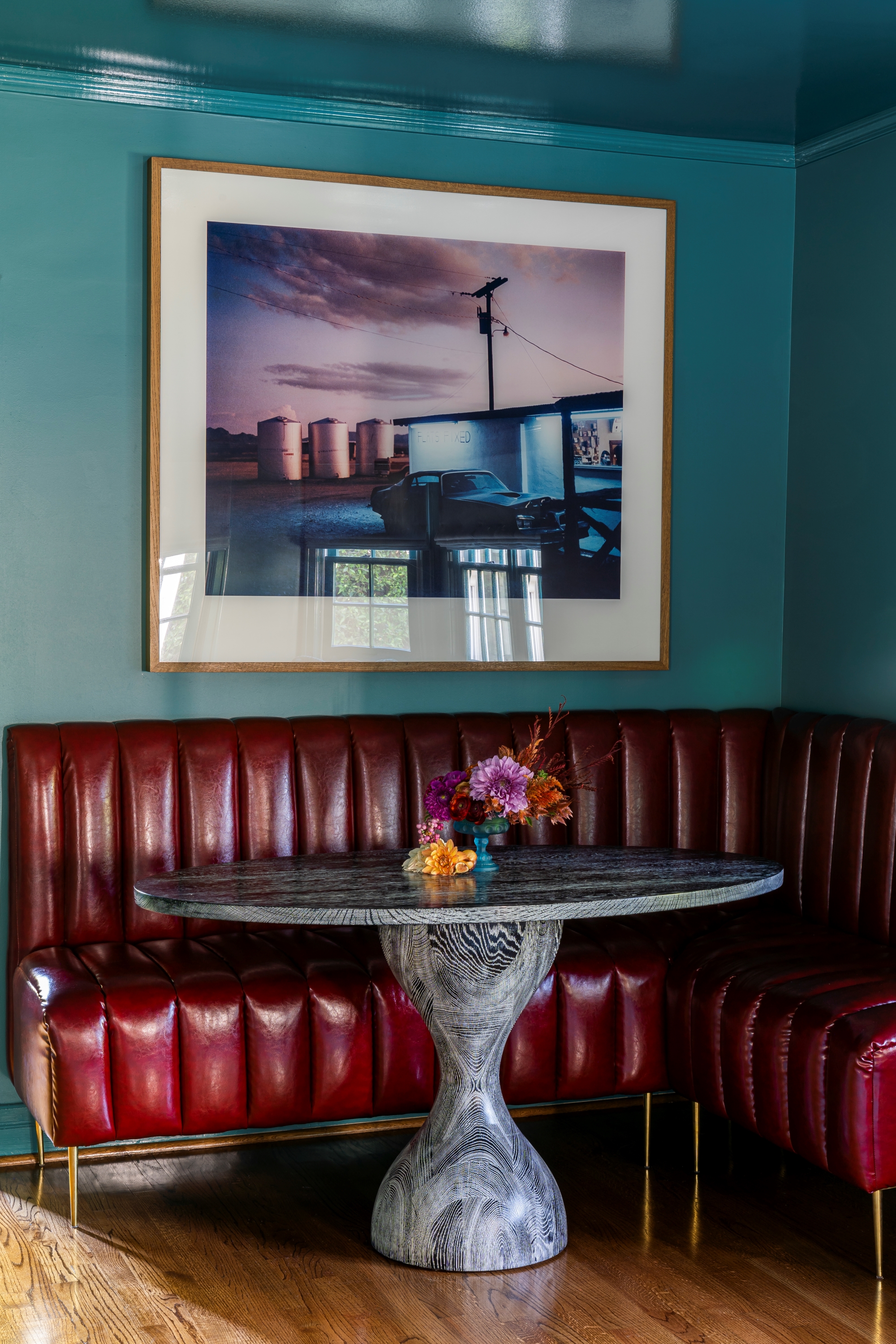
A moody color palette covers shades that feel dark and rich in tone. Interiors that are considered moody feel bold and full of character – think dark green hues, the deepest blue or rich brown tones. 'The objective is to achieve a space that exudes richness and drama while retaining an air of sophistication and coziness,' explains Liz Wilson, co-founder and creative director at Wilson Studio LA.
If you've become used to neutral, minimalist interiors, you might feel a moody color palette isn't quite right for your home, but dark hues suit almost any style of space. 'Don’t be afraid to use rich, moody colors,' says Hannah Yeo, senior manager of color marketing at Benjamin Moore. 'From farmhouses to Tudor to modern homes, deep colors fit various architectural style homes.'
How to decorate with a moody color palette
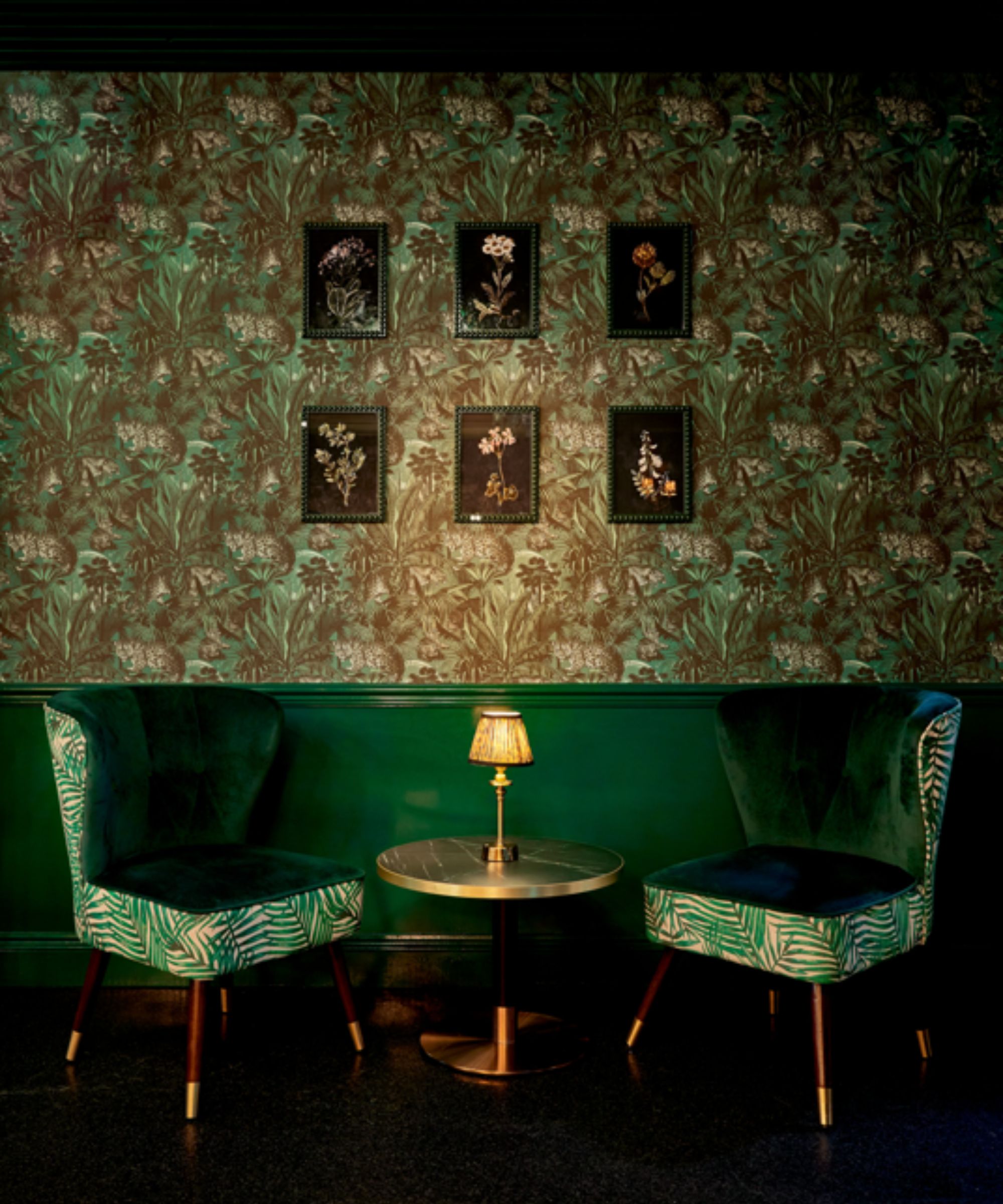
When decorating with a moody color palette, it's more than just filling a room with dark colors, rather striking a balance between a rich scheme and an inviting atmosphere. 'Infusing moody hues into your space doesn't have to cast a shadow over its warmth and allure. As with everything in interiors and design, balance and contrast are key,' explains interior designer Matthew Williamson. 'It's all about finding that harmonious interplay between darkness and brightness, creating a space that feels both warm and sophisticated,' he adds.
There are different ways to incorporate moody colors into your home depending on how confident you feel about using them. 'I love it when the whole room is enveloped in one color including the ceiling,' says interior designer Meghan Eisenberg.
You might be wondering should you paint your ceiling the same color as your walls, but color-drenching has soared in popularity recently and for good reason. Enveloping a space in color creates a cozy scheme, and avoids that sense of a room feeling incomplete with a glaring white ceiling.
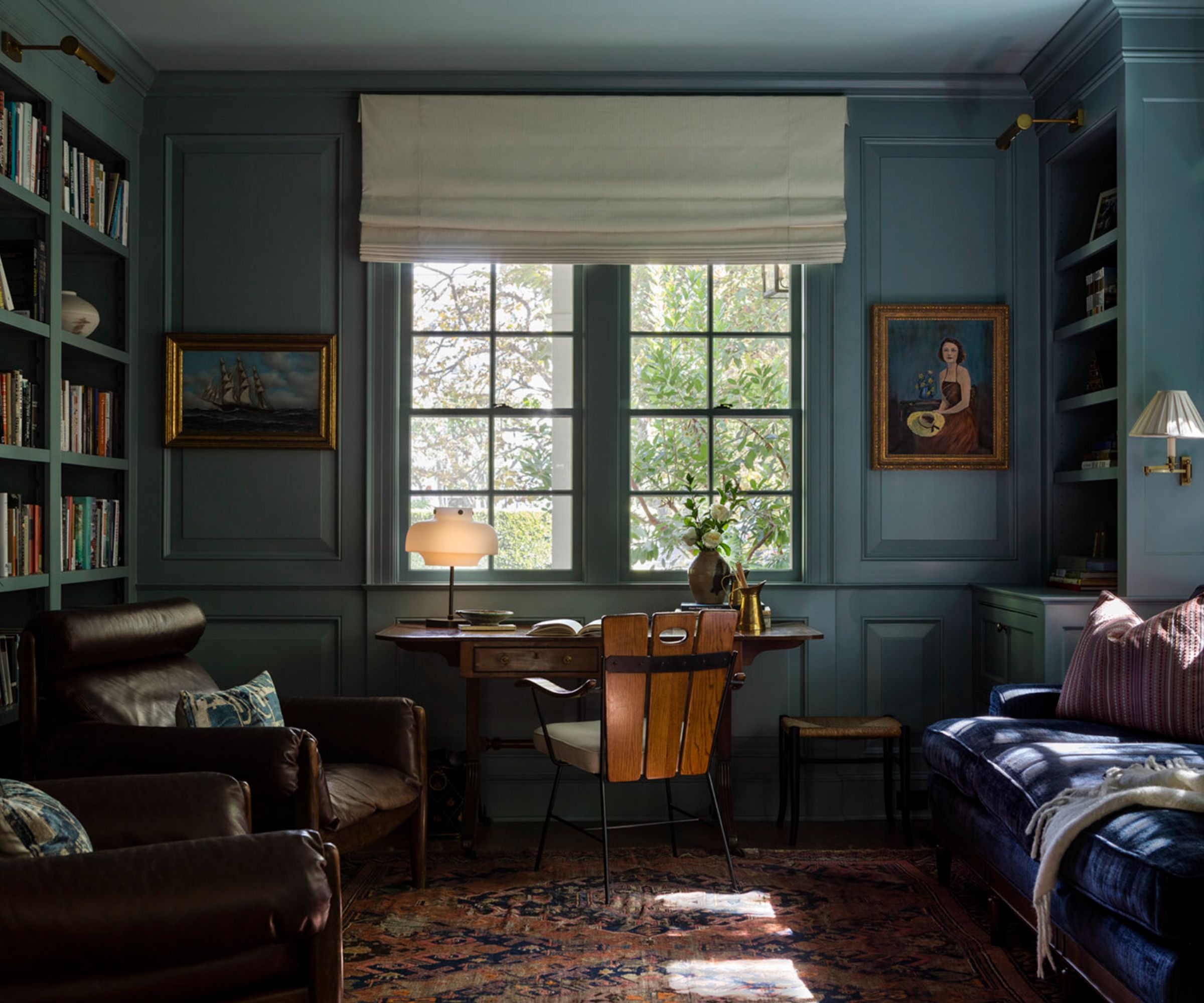
Not everyone enjoys a space filled with color, but that doesn't mean you should shy away from moody color palettes. Instead, consider decorating in a more paired back way, while still maintaining that sense of drama dark tones create. 'If painting all four walls in dark colors is too much, there are other ways to bring in a moody vibe to the space. Start small with an accent wall. Pair it with a softer version or nuanced neutrals to lighten up the room,' says Hannah Yeo.
If you want to embrace the painted ceiling trend in a more subtle manner, painting just the ceilings in a moody color can add a fun feature. 'If you have high ceilings, a darker colored ceiling can help make the room feel intimate. Imagine a glossy dark charcoal ceiling, reflecting the chandelier lights; it’s dramatic, unexpected and intriguing,' Hannah adds.
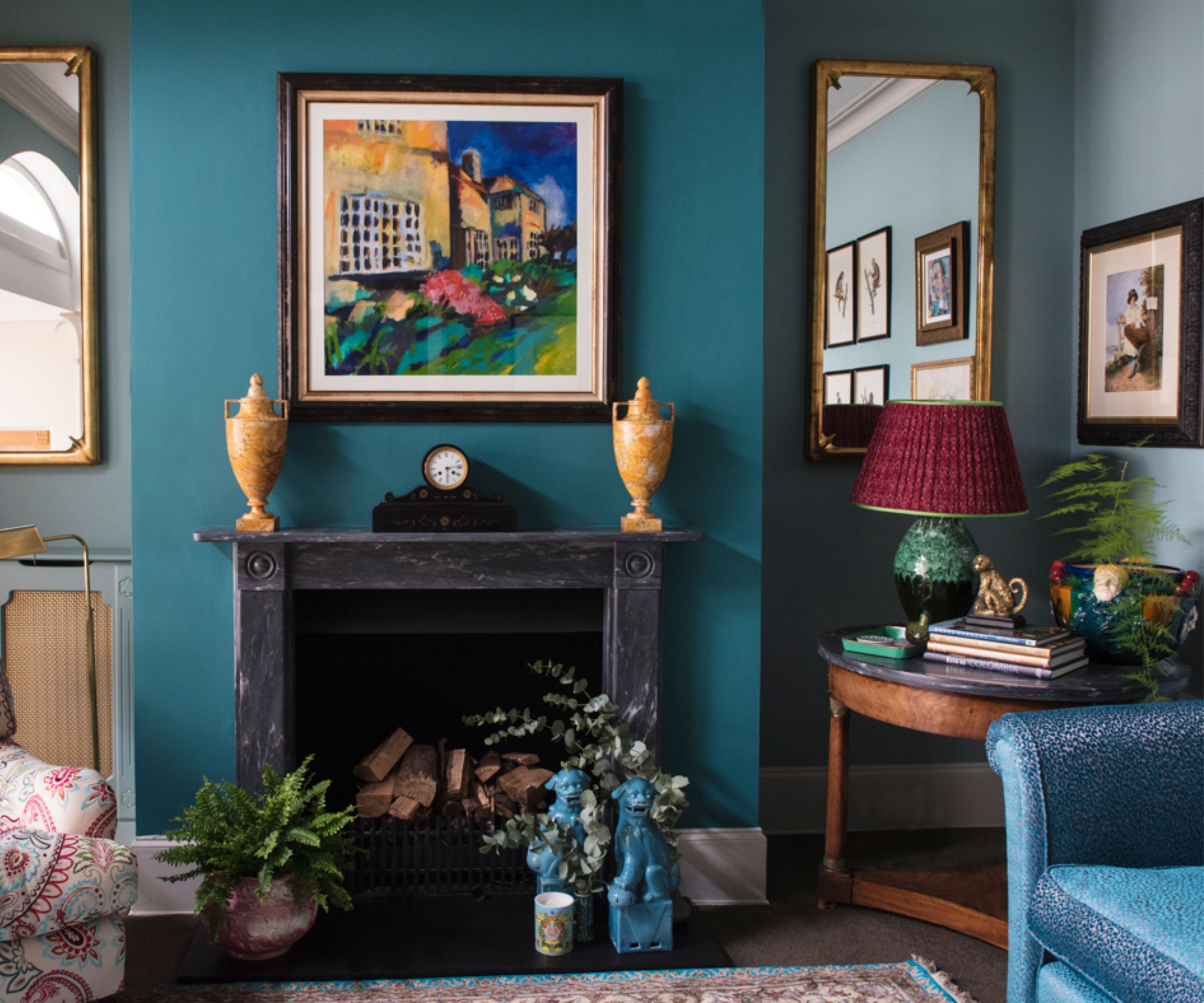
Although the wall color is integral to the overall aesthetic of a moody scheme, the furniture and decorative items hold just as much importance. 'Think of your larger furniture pieces as the bold showstoppers, painted in rich, deep tones that anchor the room. Then, let vibrant accessories contrast and complement these pieces, casting light and injecting pops of color into the scene. These could be a bright lampshade, printed cushions or rugs, or a more neutral vase,' Matthew suggests.
Smaller accessories are a great starting point when you begin decorating with a moody color palette. Even if you bite the bullet and drench your space in darker paint colors, the decorative elements help to ground a room and create cohesion. 'It is important to bring in highlights through finishes and fabrics,' adds Meghan. 'By carefully curating these elements, you can ensure that while the space is enveloped in moody hues, it remains inviting and dynamic, striking the perfect balance between drama and comfort.'
How to avoid making rooms feel uninviting with a moody color palette
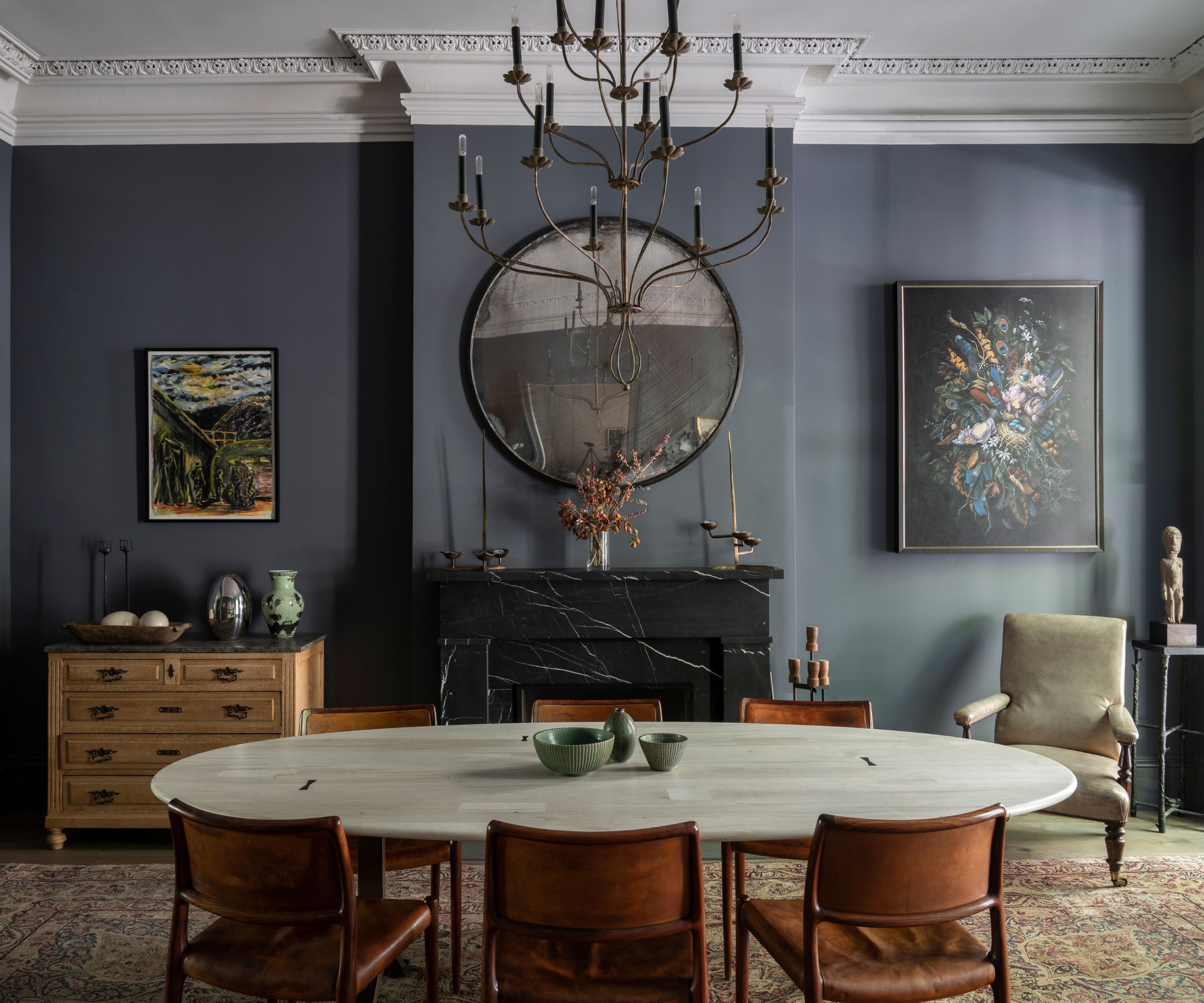
One of the main concerns with dark colors is that a space will become dingy and uninviting. However, there are plenty of ways to avoid this, and rather create a moody living room that still feels light and welcoming. 'To mitigate the risk of the room feeling excessively dim and unwelcoming, we integrate floral prints and brass accents, while also incorporating tactile elements such as velvets and mohair,' says Liz.
The obvious way to brighten a dark scheme is to introduce more light into the space. 'Light is a vital part when selecting colors, especially with darker hues. Large rooms with an abundance of light can effortlessly embrace darker colors. The natural light brings out the undertones of the color as the sun rises and falls,' explains Hannah.
The effect of your chosen colors will also be affected by the direction the room faces. 'Sunny south-facing rooms will bring out the hidden undertones of these shades, but in north-facing spaces which receive little natural light, these shades will often appear darker,' explains Patrick O’Donnell , brand ambassador at Farrow & Ball.
If you're working with a space that doesn't benefit from any natural light, introducing the right artificial light can offer the same effect. This is also where decorative accents can come into play. 'For rooms with little to no natural light, bring in lighter color accents to balance the room. Light floor colors, creamy textiles and reflective surfaces provide a visual break while heightening the darker hue resulting in a well-defined, polished look,' suggests Hannah.
What colors work best in a moody color palette?
Green
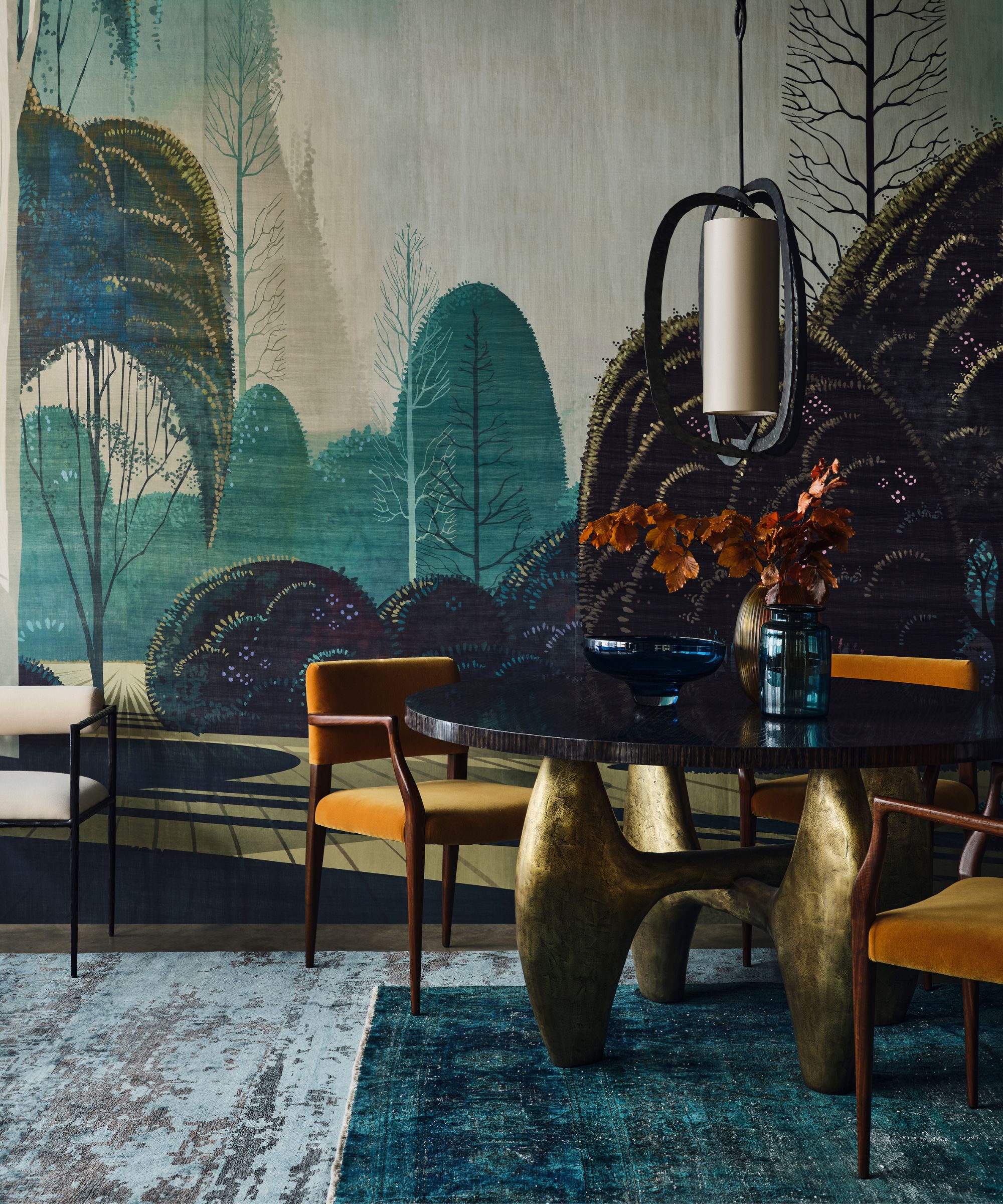
A color that has dominated trends in recent years, green is a versatile shade that leans perfectly into the moody color palette. Think dark forest greens and deep emerald hues – this color can add a richness and sophistication you might not expect.
'Green is my go-to color for bolder schemes. Lush and dense shades of green feature prominently in my work, as they add depth and intrigue to the space and take center stage without becoming overwhelming,' says Matthew Williamson.
'Deep, jewel-toned greens for me project luxury, glamour, and decadence, and I love to pair them with the softer, more calming green tones on the spectrum to achieve a balanced effect. That’s the great thing about decorating with green, the options are so broad they can be applied to any scheme,' he adds.
Dark green is most commonly associated with kitchens, but this tone can work wonders in any room in the home. 'Consider dressing up a dining area or entertainment space with Beau Green 2054-20. Hints of reflecting accents, such as glass, mirrors and metallic elements, add sparkle for a glamourous effect,' says Hannah Yeo.
Blue
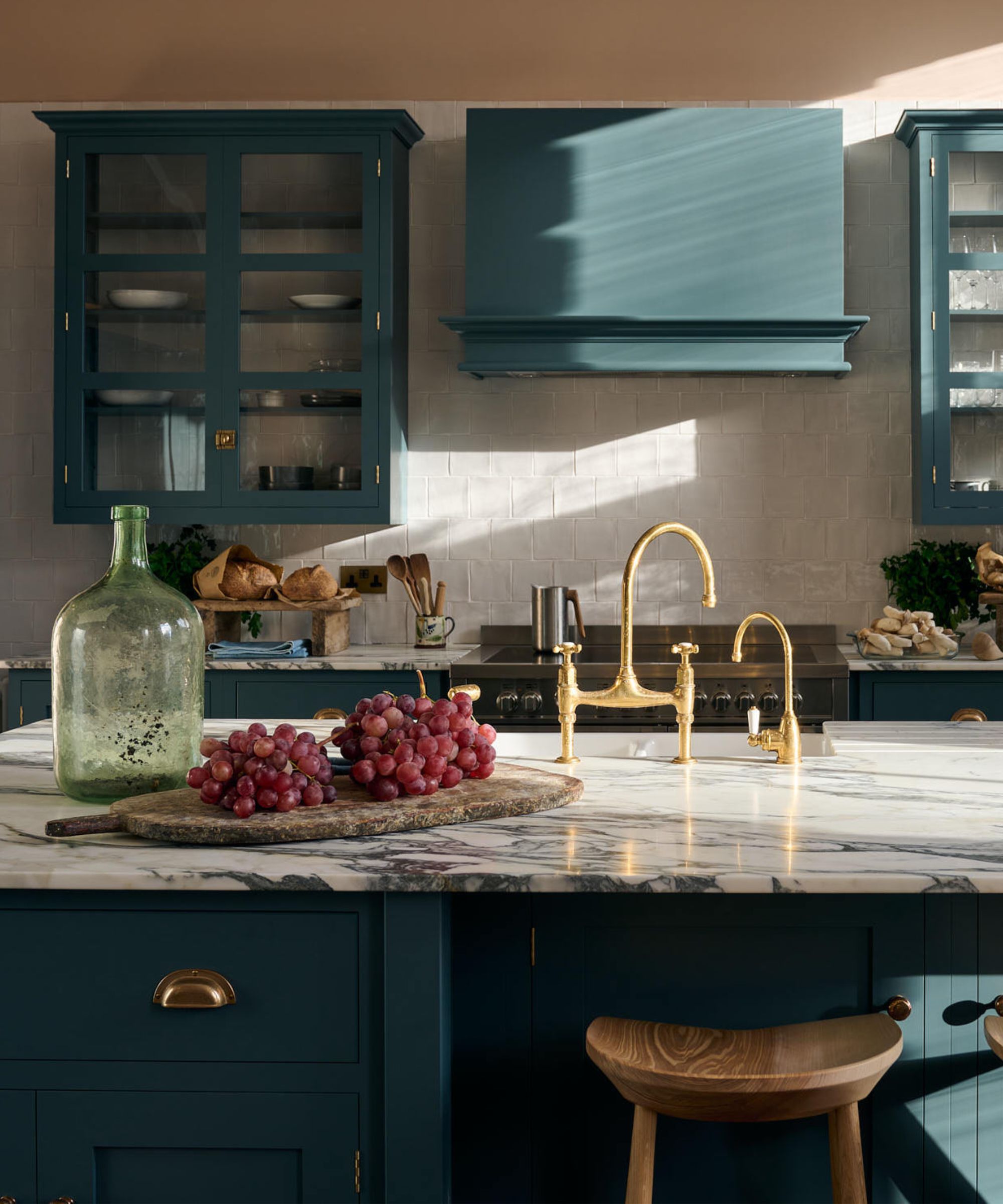
Blue is a shade most people feel quite comfortable using, and rich, deep hues look striking in a moody scheme. 'Another color I feel very comfortable using for bold, moody schemes is blue,' says Matthew Williamson.
'If you want impact and intensity, you can’t go wrong with a deep, inky blue. It is an incredibly versatile shade that can work for both ultra-contemporary interiors and traditional properties, and it instantly gives a decadent, cocooning feeling that elevates the room,' he adds.
If drenching a main room in dark blue feels too overwhelming, start by trialing it in a smaller room, such as a utility room or bathroom. Blue is a classic bathroom color anyway, so introducing it in a deeper tone feels like a smaller adjustment if you're not used to working with a moody color palette.
Brown
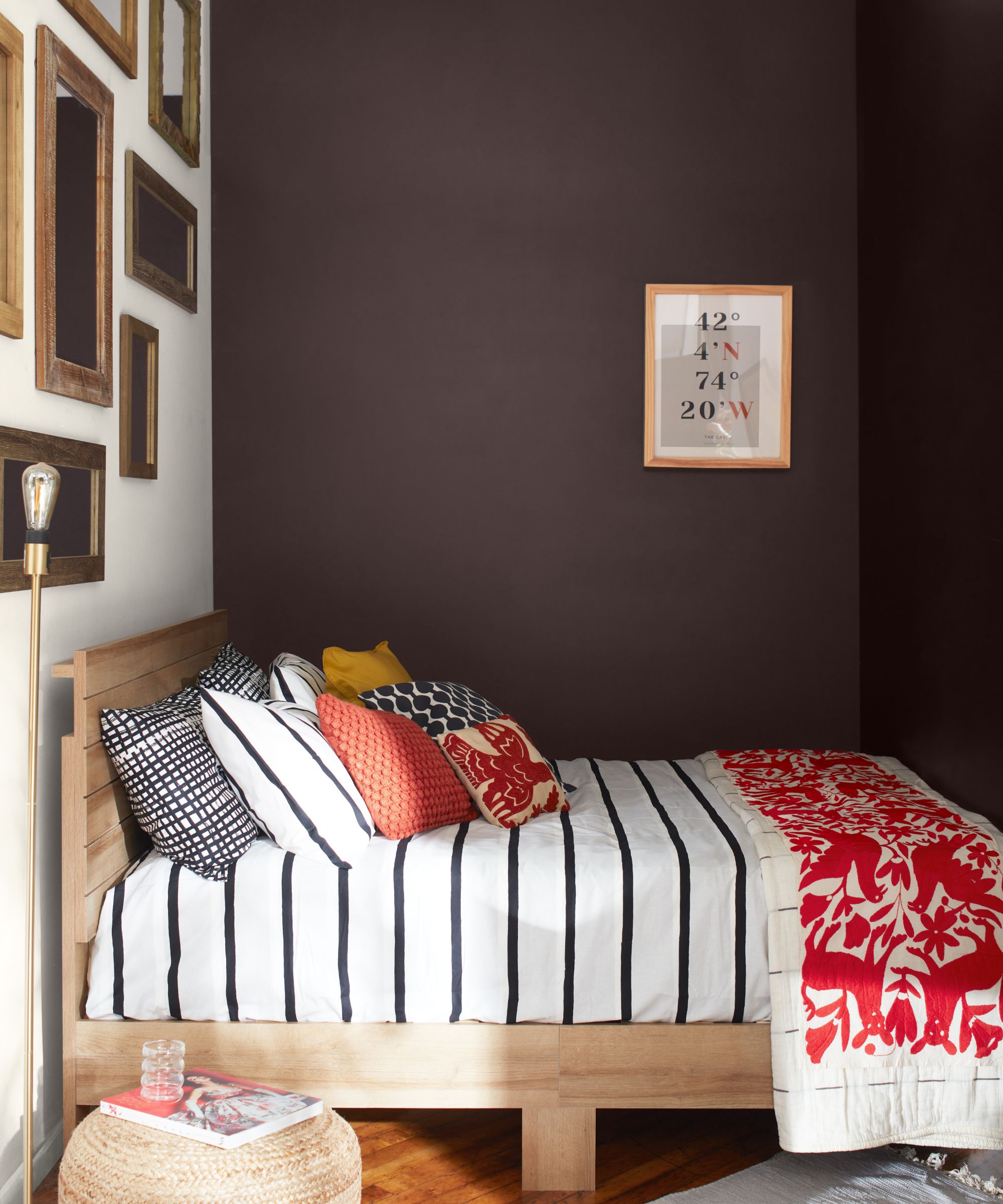
Brown paint colors have certainly enjoyed a resurgence recently, and they're set to endure. 'Rich browns are always a good choice,' says Patrick O’Donnell. 'Using Tanner’s Brown or Salon Drab in a dark living room will bring a much-needed touch of warmth,' he adds.
Brown can often feel like a moody color palette's answer to neutrals thanks to its ability to pair with an abundance of other tones, and the versatility of different brown shades. Hannah Yeo recommends Benjamin Moore's Wenge AF-180, which she describes as 'a rich chocolate brown that envelops a space.'
'This versatile hue gives you the dramatic and grandeur look without using a vibrant color. Its earthy neutral undertone provides comfort and calmness making it a great choice for bedrooms, home offices and reading nooks,' says Hannah.
Decorating with a moody color palette doesn't result in dingy uninviting spaces, and it certainly doesn't remove more vibrant hues from schemes. The key to a successful design using darker colors is to stick to complimentary shades, and only use as much paint as you feel comfortable with. Whether you lean into a color-drenched space, add an accent wall or introduce rich tones through decorative details, a moody color palette can be introduced to homes of any size and style.
Sign up to the Homes & Gardens newsletter
Design expertise in your inbox – from inspiring decorating ideas and beautiful celebrity homes to practical gardening advice and shopping round-ups.

I’ve worked in the interiors magazine industry for the past five years and joined Homes & Gardens at the beginning of 2024 as the Kitchens & Bathrooms editor. While I love every part of interior design, kitchens and bathrooms are some of the most exciting to design, conceptualize, and write about. There are so many trends, materials, colors, and playful decor elements to explore and experiment with.
-
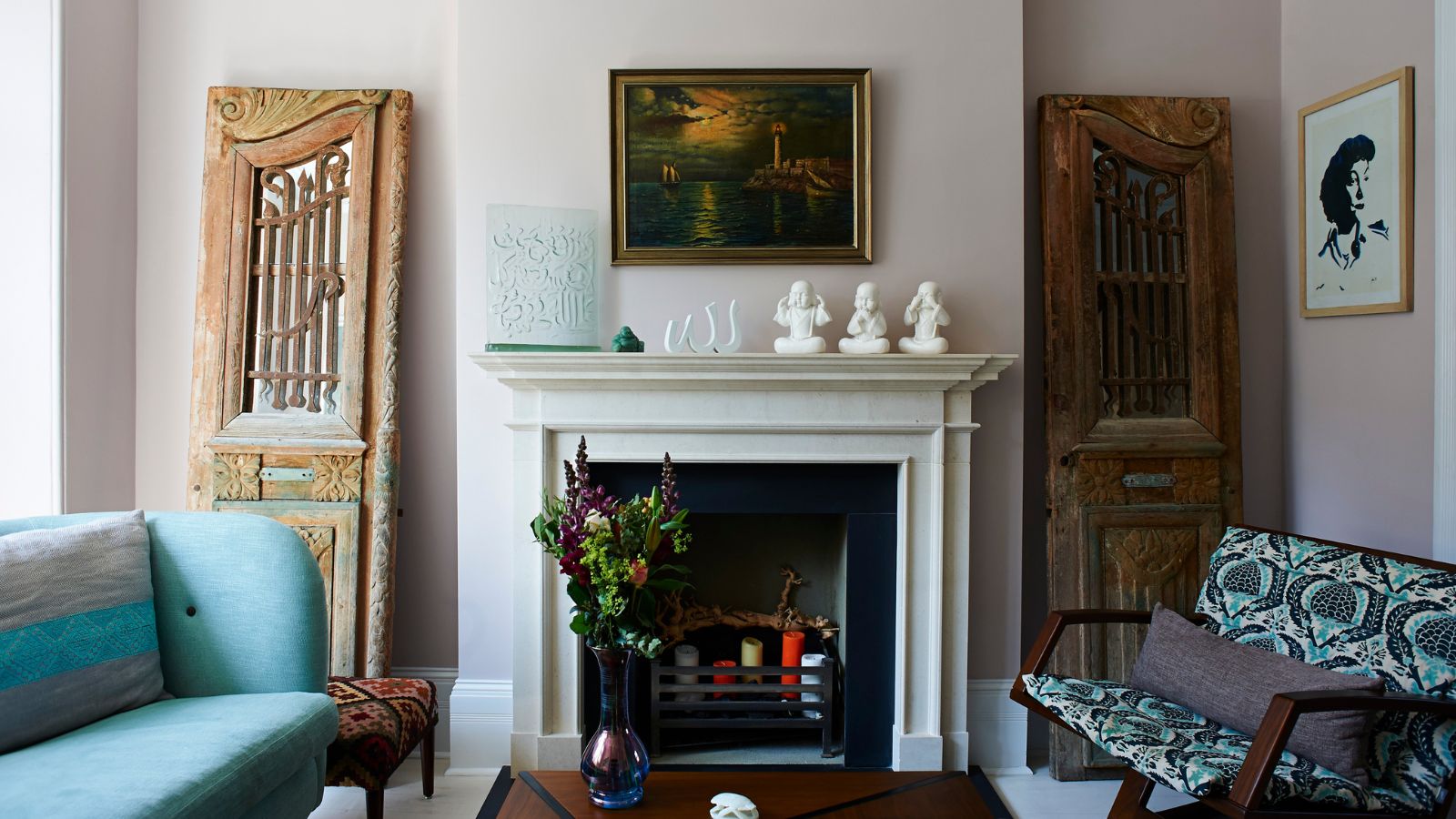 'It's a fast reset button' – using the 1, 2 ,3 ,4, 5 decluttering method cleared my persistent mess in seconds
'It's a fast reset button' – using the 1, 2 ,3 ,4, 5 decluttering method cleared my persistent mess in secondsIt's easy, effective and so quick to do
By Ottilie Blackhall Published
-
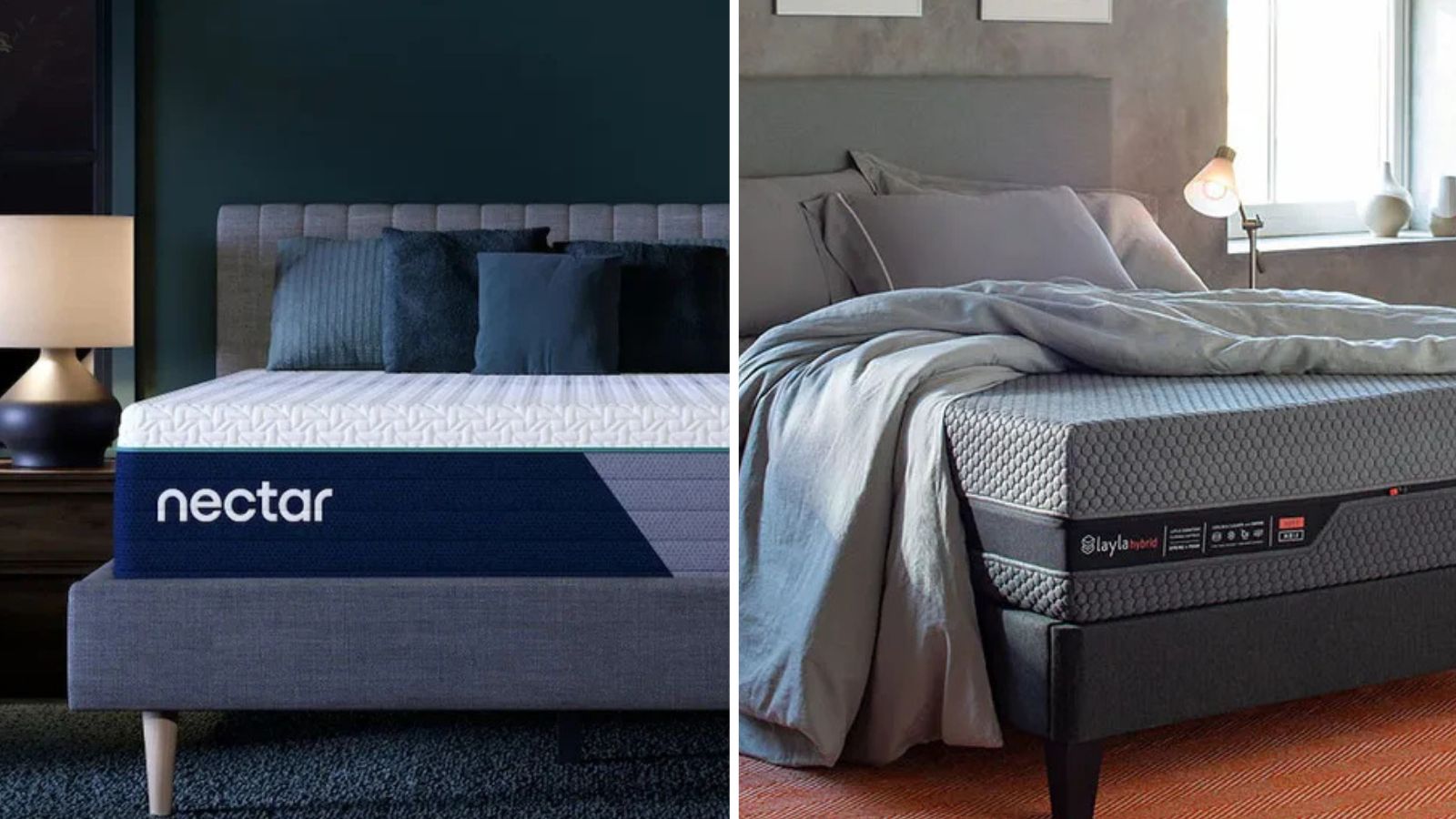 Nectar vs Layla – which mattress brand is best on test?
Nectar vs Layla – which mattress brand is best on test?I've set the Nectar Premier Hybrid Mattress and the Layla Hybrid Mattress head to head to help you work out which mattress meets your needs
By Emilia Hitching Published